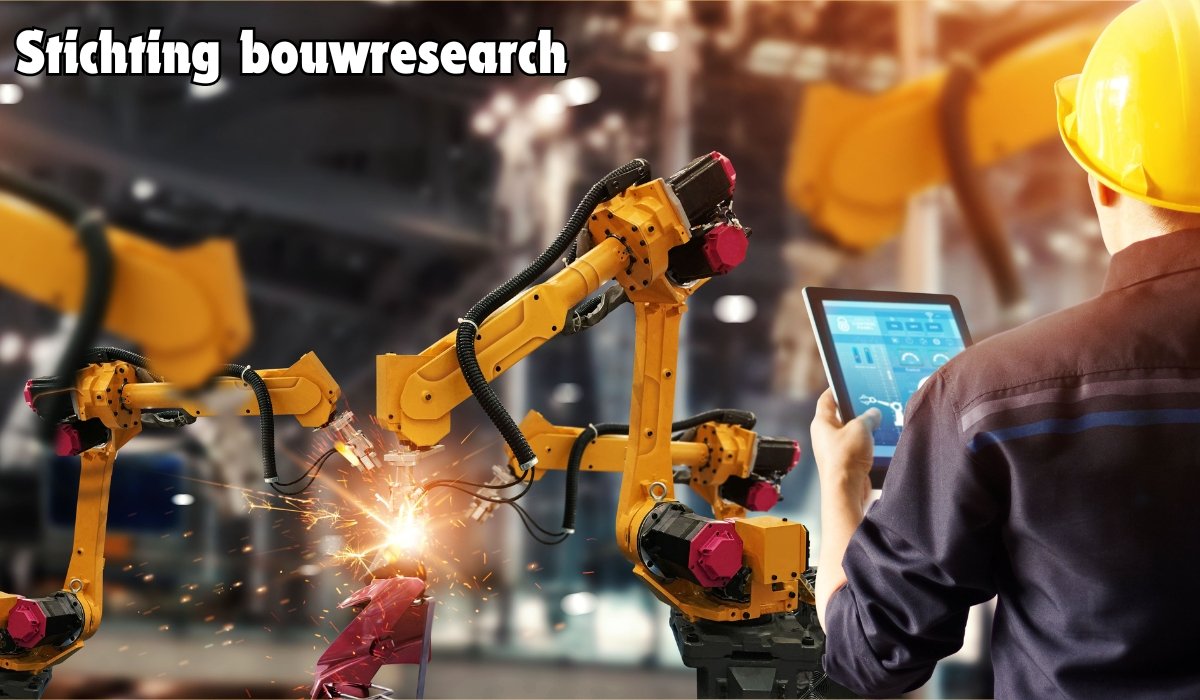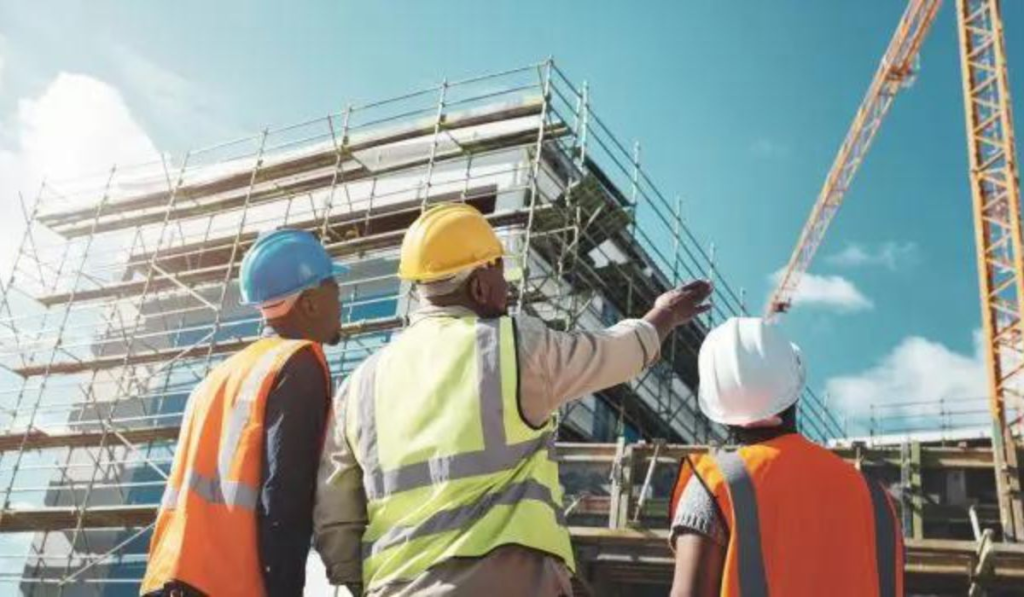
Stichting Bouwresearch is a renowned research organization in the Netherlands that has made significant contributions to the construction industry over the years. Known for its commitment to driving innovation, sustainability, and the implementation of new technologies, the foundation plays a crucial role in enhancing the efficiency and quality of construction processes. In this article, we will explore the objectives, functions, and impact of Stichting Bouwresearch on the construction sector. We will also examine how it contributes to industry-wide advancements in technology, sustainability, and safety.
What is Stichting Bouwresearch?
Stichting Bouwresearch is a non-profit research organization that specializes in applied research related to the construction and infrastructure sectors. Established with the goal of improving the quality, efficiency, and sustainability of construction projects, Stichting Bouwresearch is a collaborative platform where industry stakeholders, academic institutions, and governmental bodies come together to address the most pressing challenges in construction.
The name “Bouwresearch” itself highlights the foundation’s central focus on “building” and “research.” It operates as a bridge between scientific research and real-world construction practices, ensuring that innovations are not just theoretical but practically applicable to ongoing construction projects.
Through its research, Stichting Bouwresearch is involved in a wide range of studies related to construction, including sustainable building materials, new construction technologies, digital transformation in the industry, and improving construction site safety. The foundation also develops methodologies and guidelines to help construction companies improve efficiency, reduce costs, and enhance safety standards.
Core Areas of Research at Stichting Bouwresearch
Stichting Bouwresearch conducts research across several important domains, all of which contribute to improving construction methods, materials, and overall industry practices. Below, we will dive deeper into the key areas of research led by the foundation, examining each focus area in more detail.
1. Sustainable Building Practices and Materials
Sustainability is one of the most urgent issues facing the construction industry today. As concerns about climate change and resource depletion grow, the demand for environmentally responsible building practices is greater than ever. Stichting Bouwresearch plays a leading role in this effort by conducting research on sustainable construction materials, energy-efficient designs, and waste reduction methods.
In particular, the foundation has contributed to the development of alternative building materials that have less environmental impact. These materials can be sourced from recycled products or sustainably grown resources. For instance, Stichting Bouwresearch has researched the use of sustainable timber, recycled steel, and innovative concrete alternatives that reduce carbon emissions compared to traditional materials.
Additionally, the foundation focuses on energy-efficient building designs that reduce energy consumption throughout a building’s lifecycle. This includes the use of advanced insulation technologies, energy-efficient windows, and the incorporation of renewable energy sources such as solar and wind power. These sustainable innovations are essential to meeting the global demand for energy-efficient and eco-friendly buildings.
2. Digitalization in Construction: The Future of Smart Buildings
Digitalization is revolutionizing every sector, and construction is no exception. Stichting Bouwresearch is at the forefront of integrating digital technologies into the construction process. The foundation’s research focuses on leveraging cutting-edge technologies like Building Information Modeling (BIM), Internet of Things (IoT), and Artificial Intelligence (AI) to improve design, construction, and operation of buildings.
BIM is one of the most transformative technologies in construction today. It allows architects, engineers, and contractors to collaborate in a digital environment, creating 3D models of buildings that are accurate, detailed, and updated in real time. This technology reduces errors, minimizes waste, and enhances communication across all stages of construction. By utilizing BIM, construction professionals can make better-informed decisions and avoid costly mistakes.
In addition to BIM, Stichting Bouwresearch is exploring the application of IoT and AI in construction. IoT devices embedded in building materials or machinery can monitor and report on factors such as temperature, humidity, and structural integrity. These real-time data streams allow for the creation of smart buildings that can self-regulate, optimize energy use, and enhance comfort for inhabitants. Furthermore, AI-driven design tools are helping architects to create highly optimized building plans based on data from previous projects, which improves both design efficiency and long-term building performance.
3. Circular Economy in Construction
The transition to a circular economy is another major focus for Stichting Bouwresearch. In a circular economy, the goal is to minimize waste and make the most of available resources. In the context of construction, this means reducing the need for new raw materials by reusing and recycling materials from older buildings and structures.
Stichting Bouwresearch is investigating methods for extending the life cycle of construction materials through innovative reuse strategies. For example, the foundation is exploring techniques to safely and efficiently reclaim building materials like bricks, concrete, and steel from demolition sites. These materials can then be cleaned, processed, and reused in new construction projects.
Research into the circular economy also involves developing new methods for designing buildings that are easier to disassemble and repurpose. This includes promoting modular construction, where building components are designed to be easily disassembled and reused, instead of being demolished and discarded.
Through its research, Stichting Bouwresearch is helping construction companies adopt practices that reduce waste, lower environmental impact, and contribute to a more sustainable built environment.
4. Safety and Quality Control in Construction Projects
Construction sites are known for being high-risk environments. Worker safety is a top priority, and Stichting Bouwresearch has been instrumental in researching ways to improve safety standards across the construction industry. The foundation conducts studies into the causes of workplace accidents and develops recommendations for mitigating risks. This includes the use of safety technologies such as drones, sensors, and AI to monitor construction sites in real time, ensuring compliance with safety protocols.
In addition to safety, Stichting Bouwresearch works on enhancing the overall quality of construction projects. By researching best practices in quality control, the foundation has developed strategies to improve construction processes and ensure that buildings meet rigorous standards for safety, durability, and performance. This includes methodologies for testing materials, conducting inspections, and ensuring the use of reliable, high-quality building products.
5. Urban Development and Infrastructure Research
Urbanization is a global trend, and Stichting Bouwresearch is helping cities prepare for the challenges that come with rapid urban growth. The foundation’s research focuses on how to design and build infrastructure that can withstand the pressures of growing populations, climate change, and limited resources. From transportation systems to water management, the research conducted by Stichting Bouwresearch ensures that urban development is both resilient and sustainable.
In addition, Stichting Bouwresearch is exploring ways to integrate sustainable infrastructure solutions into cities, such as green roofs, urban farming, and advanced waste management systems. These innovations help cities become more self-sufficient and reduce their reliance on external resources.
How Stichting Bouwresearch Drives Innovation in Construction

Innovation is at the heart of Stichting Bouwresearch’s mission, and the organization employs several strategies to foster cutting-edge advancements in the construction industry. Below are some ways Stichting Bouwresearch drives innovation.
1. Collaborative Research with Industry Partners
Stichting Bouwresearch understands the value of collaboration in driving innovation. It works closely with construction companies, government agencies, academic institutions, and technology providers to share knowledge and resources. By fostering partnerships with key industry stakeholders, Stichting Bouwresearch ensures that its research is aligned with real-world needs and can be successfully implemented across the industry.
2. Piloting New Technologies and Materials
To ensure that its research findings have practical applications, Stichting Bouwresearch regularly conducts pilot projects to test new technologies and building materials. These real-world tests allow researchers to assess the effectiveness of their innovations before they are rolled out on a larger scale. The foundation often partners with construction companies to conduct these pilots, ensuring that the outcomes are both practical and scalable.
3. Supporting the Transition to Smart Cities
With the growing importance of smart cities, Stichting Bouwresearch is helping to shape the future of urban environments. Through its research on digital technologies, smart infrastructure, and sustainable building practices, the foundation is playing a vital role in creating cities that are efficient, connected, and environmentally friendly.
The Role of Stichting Bouwresearch in Enhancing Construction Quality
By conducting rigorous research and testing, Stichting Bouwresearch is helping to improve construction quality in a number of ways.
1. Developing Standards and Best Practices
Stichting Bouwresearch works to establish clear standards and best practices in construction that ensure high-quality results. By using research-backed data and case studies, the foundation helps construction professionals adhere to industry benchmarks that improve both safety and performance.
2. Quality Assurance Programs
The foundation also contributes to the creation of quality assurance programs that help construction companies maintain the highest standards throughout their projects. These programs are designed to reduce defects and ensure that construction work meets all necessary regulations.
3. Training and Education for Professionals
To further improve quality across the industry, Stichting Bouwresearch offers training and educational programs for construction professionals. These programs cover the latest developments in construction technology, safety standards, and best practices, helping professionals stay updated with industry trends.
The Impact of Stichting Bouwresearch on Sustainability in Construction
Sustainability remains one of the most important challenges for the construction industry, and Stichting Bouwresearch is leading the charge in this area. Through its groundbreaking research, the foundation has played a crucial role in making construction more sustainable.
1. Energy-Efficient Building Designs
Stichting Bouwresearch is at the forefront of research into energy-efficient building designs. By focusing on new insulation technologies, energy-efficient windows, and renewable energy systems, the foundation helps architects and builders create structures that are both eco-friendly and cost-effective over the long term.
2. Promoting Sustainable Construction Practices
In addition to its work on building designs, Stichting Bouwresearch encourages the adoption of sustainable construction practices, such as waste reduction, material recycling, and eco-friendly building techniques. Through its research, the foundation promotes practices that minimize the environmental impact of construction projects.
3. Researching the Circular Economy Model
A major component of Stichting Bouwresearch’s sustainability efforts is its research into the circular economy. By exploring how materials can be reused and repurposed in construction, the foundation helps reduce waste and extend the life cycle of construction resources.
Future of Stichting Bouwresearch: Innovations on the Horizon
The future of Stichting Bouwresearch is bright, with many exciting developments on the horizon. Some key areas of future innovation include the continued integration of smart technologies into construction, further advancements in sustainable materials, and an increasing focus on global collaborations to tackle global construction challenges.
As Stichting Bouwresearch continues to lead the way in driving innovation, sustainability, and safety in the construction industry, its impact will only grow in the years to come.
Conclusion
Stichting Bouwresearch has firmly established itself as a leader in the research and development of innovative construction solutions. Through its work in sustainable building practices, digitalization, safety improvements, and urban development, the foundation is helping to shape the future of the construction industry. By continuing to push the boundaries of technology, sustainability, and quality, Stichting Bouwresearch will remain at the forefront of innovation for years to come.
